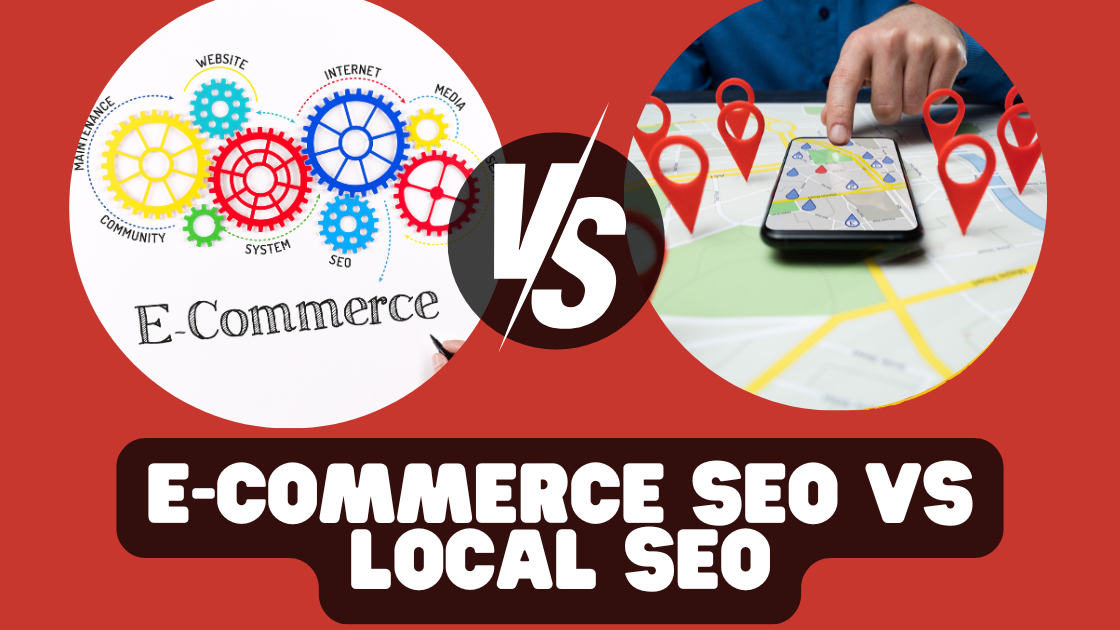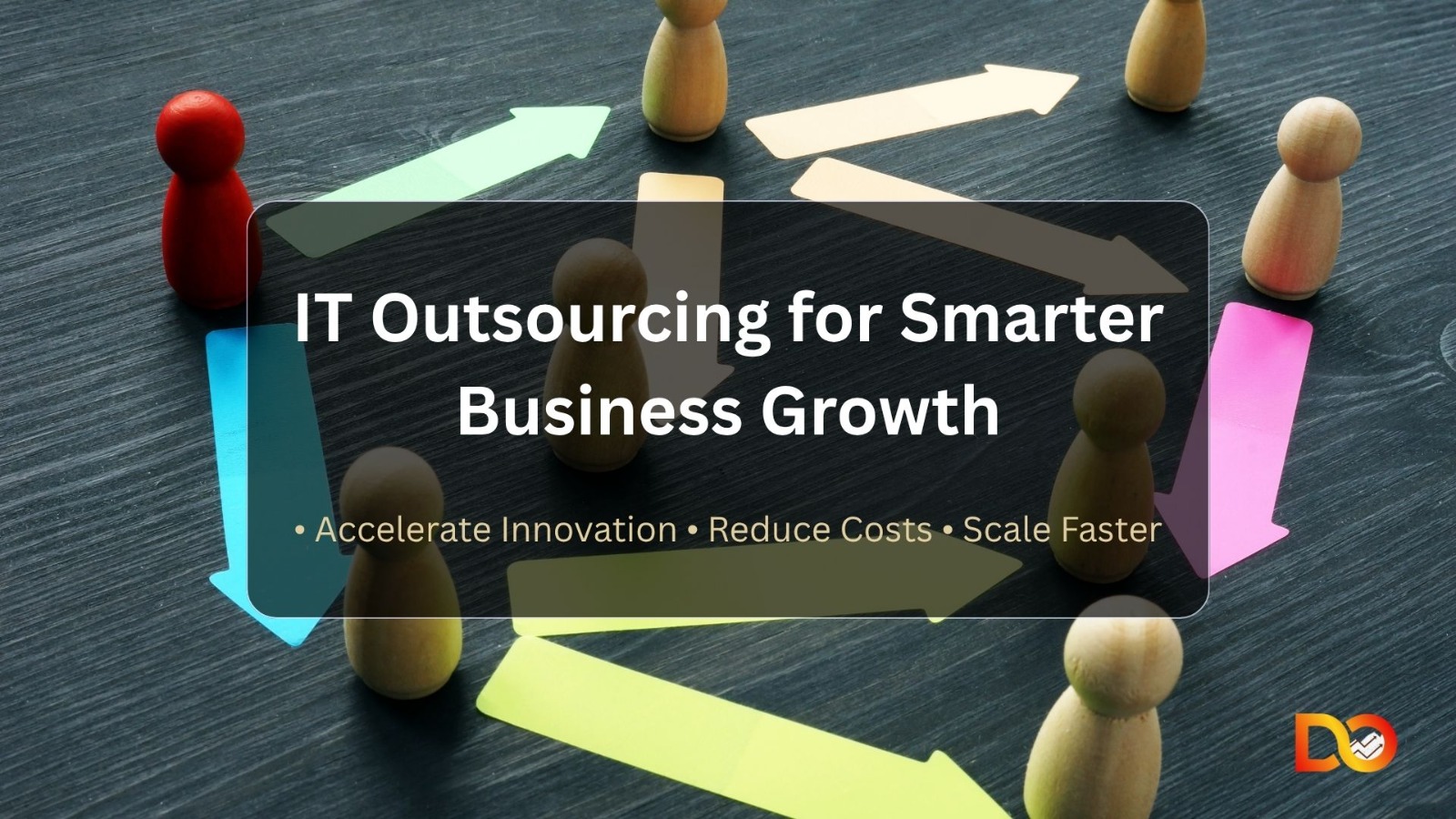In today’s digital marketplace, businesses wonder where to focus their marketing efforts. Should you invest in specialized E-commerce SEO services to drive online product sales, or concentrate on Local SEO to capture nearby customers? We understand this dilemma and promise to guide you.
In this article, we’ll compare the goals, strategies, and effectiveness of E-commerce SEO services versus Local SEO. By the end, you’ll know which approach suits your company’s needs and whether consulting SEO experts or an SEO agency is right for your business.
What Are E-commerce SEO Services?
E-commerce SEO services are specifically designed for online retailers and businesses that sell products through their websites. This approach focuses on optimizing an e-commerce site to rank higher in search results for product-related queries. Key elements include:
- Product Keyword Optimization: Targeting specific product names, categories, and long-tail keywords that shoppers use when searching online.
- Site Architecture: Organizing an online store’s navigation, category pages, and internal linking to help search engines and users find products easily.
- Content and UX: Optimizing product descriptions, images, and user experience to increase engagement, conversions, and rankings.
- Technical SEO: Ensuring fast load times, mobile-friendly design, and structured data (rich snippets) so search engines clearly understand products and inventory.
E-commerce SEO aims to attract a broad online audience to an online store. It is ideal for businesses with an inventory to sell and a wide market. These E-commerce SEO services help boost product visibility across search engines and improve the customer journey from discovery to checkout.
Benefits of E-commerce SEO Services
Investing in E-commerce SEO services delivers many advantages for online businesses:
- Higher Online Sales: By ranking better for product searches, your store sees more qualified traffic ready to buy.
- Increased Brand Authority: Consistently appearing in search results signals trust to shoppers, enhancing your brand’s reputation.
- Cost-Effective Marketing: Compared to paid ads, E-commerce SEO services focus on organic growth. Over time, the traffic gains become sustainable.
- Scalability: As your product line grows, the right SEO services help you expand into new markets and keywords without starting from scratch.
- Data-Driven Decisions: Professional services provide analytics on what’s selling and which keywords perform, guiding product strategy and inventory management.
- Continuous Optimization: Good E-commerce SEO services include ongoing analysis and updates to keep your store aligned with search engine changes and new product launches.
Whether you’re a startup or an established retailer, E-commerce SEO services ensure your products reach the right customers online. This long-term strategy complements paid advertising and social media by directly capturing search intent.
What Is Local SEO?
Local SEO focuses on making a business visible to potential customers in a specific geographic area. This strategy is crucial for brick-and-mortar shops, local service providers, and any business that serves nearby customers. Core components include:
- Business Profile Listing: Setting up and optimizing a business profile on major maps and directory services with accurate address, hours, and photos so you appear in local search results.
- Local Keywords: Target search terms that include locations or “near me,” such as “best coffee shop in Seattle” or “plumbing services near me.”
- Local Citations: Ensuring the business is listed consistently on local directories and review sites. Consistent Name/Address/Phone (NAP) data reinforces local relevance.
- Local Content and Reviews: Creating location-specific content and encouraging customer reviews to build trust and local authority.
Local SEO is all about being discovered by customers in your neighborhood or city. An effective local SEO strategy ensures your business appears when someone nearby searches for your products or services.
Key Differences: E-commerce SEO services vs Local SEO
Both E-commerce SEO and Local SEO aim to drive traffic and conversions, but their focus and tactics differ significantly:
- Target Audience: E-commerce SEO serves a broad online audience (often national or global), while Local SEO targets customers in a specific region or city.
- Keyword Focus: E-commerce sites optimize for product and category keywords (e.g., “buy leather jacket online”), whereas Local SEO emphasizes geographic and “near me” terms (e.g., “leather jacket stores in Seattle”).
- Technical Needs: E-commerce SEO involves managing product feeds, inventory data, and site speed for large catalogs. Local SEO involves consistent business listings and leveraging map or directory features.
- Conversion Goals: E-commerce SEO converts visitors into online buyers, improving product page sales and conversions. Local SEO converts searchers into offline actions like store visits, calls, or local service bookings.
- Content Strategy: E-commerce content focuses on product details, high-quality images, and customer reviews. Local SEO content includes location pages, community news or events, and neighborhood keywords.
Both approaches still rely on core SEO fundamentals like keyword research, quality content, and fast site performance.
In short, E-commerce SEO is best for online retailers or any business selling goods through a website, while Local SEO is crucial for businesses that depend on in-person visits or local communities. For many businesses, a blend of both strategies may be needed.
E-commerce SEO Strategies and Trends for 2025
Optimizing an online store involves several strategies, and staying updated with 2025 trends keeps you ahead. Key strategies include:
- Keyword Research for Products: Discover what shoppers search for. Focus on long-tail queries that show purchase intent (e.g., “waterproof hiking boots for men”).
- On-Page SEO: Craft unique, detailed product descriptions and category pages. Use clear, engaging content to highlight features and benefits.
- Technical Performance: Ensure fast page speed, mobile-friendly design, and secure (HTTPS) checkout processes. Google’s emphasis on user experience and Core Web Vitals makes technical health vital.
- Structured Data and Rich Snippets: Implement product schema so prices, ratings, and availability appear in search results. This can improve click-through rates.
- AI and Personalization: In 2025, AI-driven search means personalizing product recommendations and content. Optimize for voice search (e.g., “smartphone under $500 near me”) and image search (scannable product photos) to stay competitive.
- Shopping Feeds and Platforms: Feed-based systems (like shopping ads and marketplace feeds) are increasingly important. Search tabs and AI assistants may show direct product results, so maintain accurate product feeds and metadata.
The rise of AI-powered search means platforms may curate products differently, but optimized product pages with strong SEO foundations still perform well. MobilE-commerce and voice search are on the rise, so ensure your E-commerce SEO services include these elements.
Read more- The Role of AI in SEO: What’s Changing and How to Stay Ahead.
Local SEO Strategies and Trends for 2025
Local SEO requires specific tactics to capture nearby searches. Key strategies include:
- Mobile and Voice Optimization: With most local searches happening on mobile and via voice assistants, ensure your site is mobile-friendly and optimize for conversational queries like “near me.”
- Localized Content: Create blog posts or landing pages that mention neighborhoods or local events. For example, a local bakery might publish content about “best birthday cakes in [City].”
- Online Reviews and Reputation: Encourage customers to leave reviews on directory sites. Positive reviews boost local ranking and trust. In 2025, review sentiment analysis by AI also influences ranking.
- Local Citations and Links: List your business in local directories and earn backlinks from community organizations or news outlets. Local link-building remains critical to improve visibility.
- Emerging Tech: Keep an eye on augmented reality (AR) and visual search. Search apps like Google Lens and others use location-based inputs. Ensure high-quality, geo-tagged photos and consider virtual tours or interactive maps to enhance local listings.
- Business Profile Management: A well-managed business profile listing remains a cornerstone of local SEO. Recent updates have enhanced features like messaging, Q&A, and product listings, making it vital to keep your profile updated and optimized. These local profiles are a core component of search visibility because local search results often include map listings. Local businesses that neglect to claim and optimize their profile are missing out on online visibility and local leads.
As search becomes more personalized with AI in 2025, local search results will factor in individual location and intent more than ever. Engaging with your community online and maintaining a strong local presence are key parts of a modern local SEO strategy.
Choosing What’s Right for Your Business
Every business is unique. Consider these guidelines:
- Online Retailers: If you operate an e-commerce store or marketplace, investing in E-commerce SEO services is essential. The goal is to rank higher for product searches, outpace competitors, and drive online sales.
- Local Businesses: If you run a physical shop, or restaurant, or provide local services, Local SEO should be a priority. You want to show up in local map packs and regional searches for your services.
- Hybrid Businesses: Many companies have both online and local aspects (like retail chains or shops with an online store). In that case, a combined approach is best: optimize your site for global keywords while also leveraging local SEO tactics for each location.
- Budget and Goals: Local SEO can yield quicker wins for small businesses with limited budgets since targeting a neighborhood is less competitive than national keywords. However, e-commerce can offer broader growth if you have a scalable product line.
- Expert Advice: Working with experienced SEO experts can clarify which strategy fits your business plan. A specialized SEO agency will conduct an audit and recommend focusing on the right areas first.
Align your SEO strategy with your objectives. If most of your sales come from outside a local area, e-commerce SEO is likely the best investment. If foot traffic and local leads matter most, invest in Local SEO. Many businesses adopt a combined approach, leveraging both E-commerce SEO and Local SEO strategies to maximize visibility and reach across digital and geographic markets.
Devoptiv’s SEO Services: Tailored for E-Commerce & Local Growth
At Devoptiv, we offer results-driven E-commerce SEO services and Local SEO strategies designed to enhance your online visibility, drive qualified traffic, and convert visitors into customers. Our SEO experts use a data-backed, ethical approach that covers on-page optimization, technical SEO, keyword targeting, mobile and voice search optimization, and local business schema implementation. Whether you’re running an online store or a service-based local business, our SEO agency crafts customized strategies that align with your business goals and industry trends of 2025. From increasing product rankings to dominating local map packs, Devoptiv is your partner in long-term growth.
Book your free consultation today and discover how we can elevate your digital presence!
FAQs
- What is the difference between e-commerce SEO and local SEO?
E-commerce SEO focuses on optimizing online stores to rank for product and category keywords across search engines. It often involves managing large product catalogs, technical site performance, and shopping feeds. Local SEO, on the other hand, targets location-based searches, optimizing business directory listings, local citations, and customer reviews. The former aims to increase online sales, while the latter drives foot traffic and local leads.
- When should a business use E-commerce SEO services instead of Local SEO?
If your business primarily sells products online (to a wide or national audience), E-commerce SEO services should be the focus. This strategy will improve your store’s visibility for relevant product searches. However, if your business depends on local customers or has physical locations, Local SEO is more important. In many cases, businesses use both strategies for maximum reach.
- How do SEO experts handle both e-commerce and local SEO?
Experienced SEO experts will tailor strategies for each area. For e-commerce, they optimize product pages, and site structure, and integrate shopping feeds. For local, they manage business profiles, local keyword content, and community engagement. A skilled SEO professional or SEO agency will balance both approaches, especially for businesses with online and offline operations.
- Why hire an SEO agency for my e-commerce or local business?
Hiring an SEO agency brings a team of specialists who understand current trends, like AI-driven search or mobile optimization. An agency has the resources to conduct thorough audits, implement changes, and provide ongoing support.
- Can small businesses benefit from E-commerce SEO services?
Yes, small businesses with an online store can greatly benefit from E-commerce SEO services. Even if your product range is modest, optimizing your site helps you to reach customers actively searching to buy. SEO experts can scale strategies to fit small budgets, focusing on high-ROI keywords and local market reach.
- What services are included in E-commerce SEO services packages?
A standard E-commerce SEO services package for online stores usually covers:
- Keyword Research: Identifying product and category search terms.
- Technical Audit: Checking site speed, mobile usability, and shopping feed integrity.
- On-Page Optimization: Improving product pages, metadata, and images for targeted keywords.
- Content Marketing: Creating blog posts or guides related to products and industry to attract visitors.
- Link Building: Earning backlinks from relevant sites to increase authority.
- Ongoing Analytics: Tracking rankings, and sales data, and adjusting strategy over time.
By covering these areas, E-commerce SEO services ensure your online store remains competitive and visible to shoppers, driving traffic and sales through organic search.







